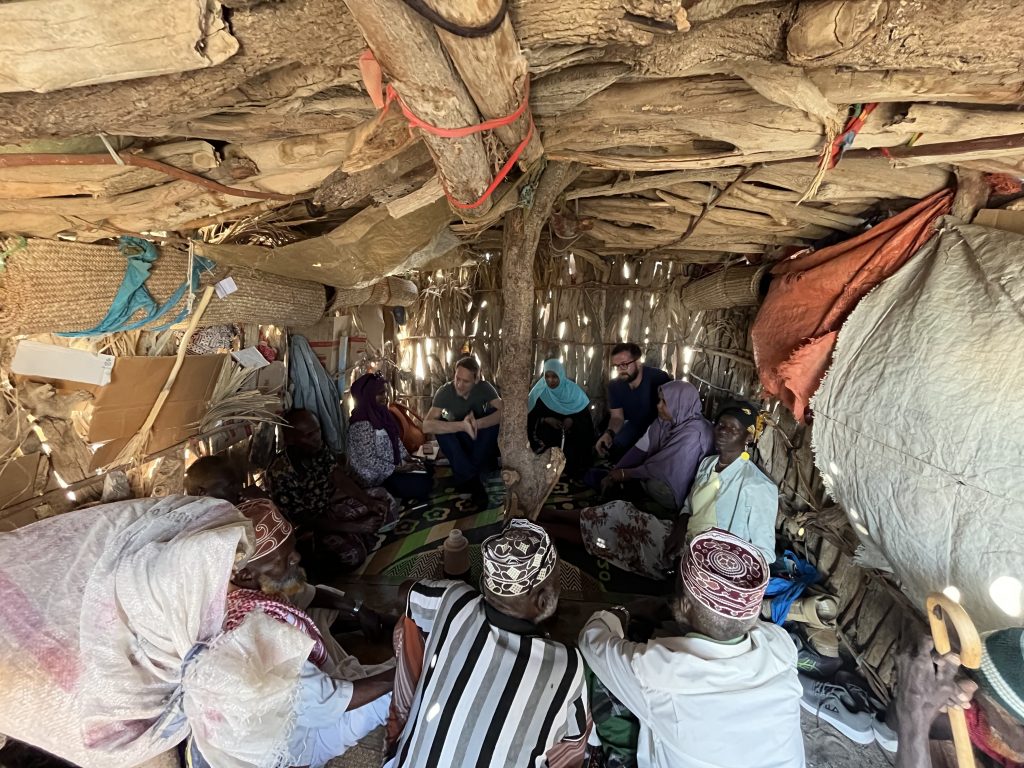 Community visit of LEAP-RE Geothermal Village program to Lake Abbe, Djibouti (source: Sant'Anna)
Community visit of LEAP-RE Geothermal Village program to Lake Abbe, Djibouti (source: Sant'Anna)The community visit to Djibouti is part of the Geothermal Village program that aims to establish geothermal-based standalone electric and thermal energy systems to off-grid African communities. A similar campaign had previously been done by a team from the Scuola Superiore Sant’Anna, the University of Turin, and Géo2 to the territory of Homa Hills in Kenya.
The research team that visited Lake Abbé was headed by Fabio Iannone, research fellow at the Sustainability Management Laboratory of the Sant’Anna School. The visit also aims to conduct in-depth interviews and focus groups in with members of the local communities, representatives of authorities, and representatives of the different stakeholders that can potentially benefit or be affected by geothermal development in the region.
Aside from the total lack of access to electricity, the Lake Abbé communities also have no access to clean drinking water. The only body of water accessible to the communities is the lake itself, which is salty. A low-enthalpy geothermal energy project can help provide electricity and potable water supply to the communities, potentially giving way to an agricultural industry and tourism.
Following the community visits to Kenya and Djibouti, the Geothermal Village program is planning to do similar in Rwanda and Ethiopia. These visits will make it possible to structure a management model for the Geothermal Village facility to maximize the program’s social, economic, and environmental benefits. The project aims to have a geothermal management model that provides for the direct involvement of local communities in the implementation, development, and management phases of the plant.